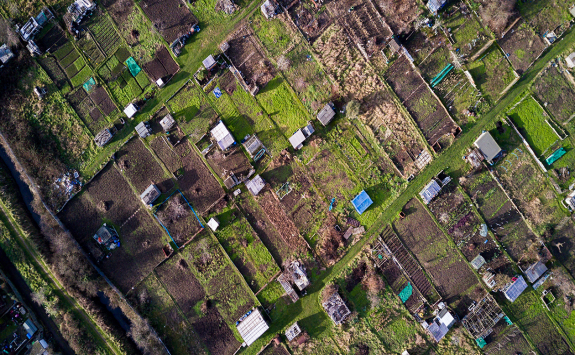ISS Environmental Justice Spotlight
How just is our food consumption? Food production encompasses a huge range of human and nonhuman activity on earth, and the effects of practices along the food production chain, have direct and indirect implications.
Food production encompasses a huge range of human and nonhuman activity on earth, and the effects of practices along the food production chain, from individuals through to corporate agriculture, have direct and indirect environmental justice implications. Newcastle researchers from across disciplines are producing evidence that can support progressive policy and decision making to address environmental concerns justly and effectively in food production and consumption.
Education
Perceptions of food’s contribution towards our carbon footprint are not always accurate. Education around food consumption has broader social justice implications that intersect with environmental concerns. Civic food networks, for example consumer co-ops and collectively run urban gardens, are emerging as ways through which food provisioning is shaped much more by civil society and democratic forms than by market and state relations.
Research using citizen science methods, by Luca Panzone and others (2020), shows that if we want to nudge consumer decision-making towards more environmentally-sensitive options, education initiatives will be an important tool in the first instance.
Community
Sebastian Prost (2019) has conducted action research with a community-run food hub in the Meadow Well area of Newcastle upon Tyne, an area faced with many challenges reflected in educational, health, employment, and other outcomes. Part of the community hub’s work involved cooking classes that showed the cost savings that can come through cooking from scratch – and the community hub ran a food supply network that sold demand-led organic, farmer-sourced food to community members.

Informing Consumption
Further work by Panzone (2021) shows that economic incentives can reduce the share of household waste output that finds its way to landfill, through reducing overall waste and increasing recycling practices. Increased levels of consumption and higher incomes are positively correlated with waste output, so a progressive household waste tax has implicit justice implications – and serves as an example of the ways in which environmental and social justice concerns can be addressed in step with each other. Consumption practices were the focus of a project, SCArFEthics, led by Alex Hughes, that studied middle class experiences in Brazil, China, and South Africa – three countries in which the middle class has burgeoned in recent decades, affording much greater purchasing power than in the past. The project investigated the ways in which these consumers received information that might inform their consumption choices, and the degree to which these resulted in sustainable consumption or otherwise.
Lynn Frewer has conducted extensive research at the forefront of understanding the ways in which food consumers and/or citizens engage with forms of food production, including consumers’ environmental concerns. Lynn leads a work package that includes considerations of the ways in which societies value the ecosystems provided by permanent grasslands in Europe, as part of the SUPER-G project. Project research indicates that the public are concerned about specific ecosystem services delivery in relation to farming, but that these may differ from policy priorities.
Newcastle is a partner in a new consortium project launching in October 2022, to be known as HOLiFOOD. The project has comprehensive research aims that include promote safer foods in relation to consumer health and the environment through effective policy translation of scientific evidence. Lynn Frewer leads the work package on Science to Policy; Mark Whittingham also contributes research.
Research staff
Alex Hughes, Luca Panzone, Lynn Frewer, Mark Whittingham, Sebastian Prost
Research outputs
- Armstrong, B, … Panzone, L, et al. (2020) Piloting Citizen Science Methods to Measure Perceptions of Carbon Footprint and Energy Content of Food. Frontiers in Sustainable Food Systems 4 (August 2020)
- Hunter, E, … Frewer, L, et al (2020) The effectiveness of policies promoting sustainable permanent grasslands across five European countries (representing five biogeographic regions): Mapping, understanding, and key stakeholder perceptions. Public report of SUPER-G Project. Panzone, L, Ulph, A,
- Areal, F, and Grippo, V. (2021) A ridge regression approach to estimate the relationship between landfill taxation and waste collection and disposal in England. Waste Management, 129, 95–110.
- Prost, S. (2019) Food Democracy for All? Developing a Food Hub in the Context of Socio-Economic Deprivation. Politics and Governance 7(4), 142–153.